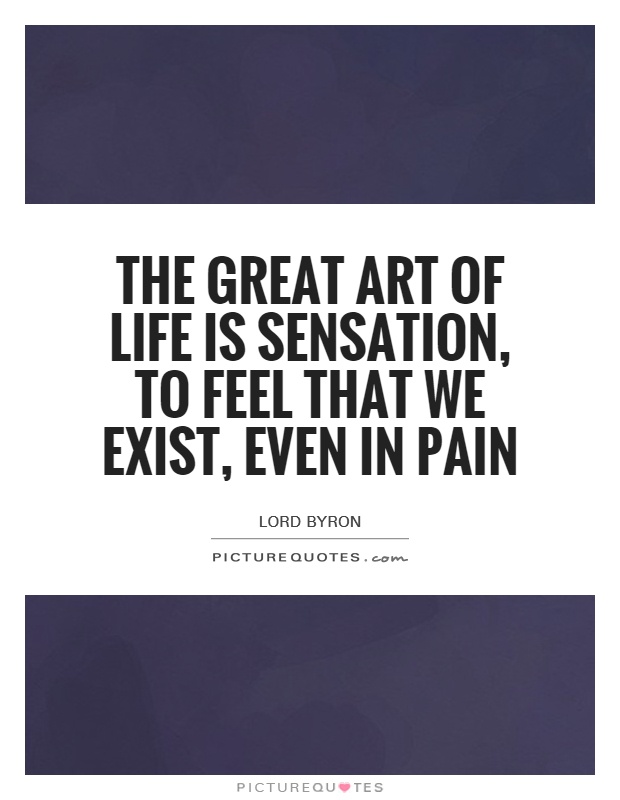The great art of life is sensation, to feel that we exist, even in pain

The great art of life is sensation, to feel that we exist, even in pain
Lord Byron, the renowned poet and romantic figure of the 19th century, was no stranger to pain and suffering. His tumultuous personal life, filled with scandal and heartbreak, often served as the inspiration for his works. In his poetry, Byron delved deep into the complexities of human emotion, exploring the depths of despair and the heights of passion.One of Byron's most famous quotes, "The great art of life is sensation, to feel that we exist, even in pain," encapsulates his belief in the power of raw emotion and the importance of experiencing life to its fullest. For Byron, pain was not something to be avoided or ignored, but rather embraced as a fundamental part of the human experience. In his eyes, it was through pain that we truly came to understand ourselves and our place in the world.
Byron's own life was marked by tragedy and loss. From the death of his beloved mother at a young age to the scandalous affairs that plagued his reputation, Byron's personal struggles were reflected in his poetry. In works such as "Childe Harold's Pilgrimage" and "Don Juan," Byron explored themes of love, loss, and longing, capturing the essence of human emotion in all its complexity.
In "Childe Harold's Pilgrimage," Byron writes of the protagonist's journey through life, grappling with the pain of unrequited love and the fleeting nature of happiness. Through vivid imagery and evocative language, Byron paints a portrait of a man haunted by his own inner turmoil, seeking solace in the beauty of the natural world.
Similarly, in "Don Juan," Byron delves into the complexities of human relationships, exploring the highs and lows of love and desire. Through the character of Don Juan, Byron examines the destructive power of passion and the ways in which it can both uplift and destroy.
In both works, Byron's belief in the importance of sensation and feeling is evident. He understood that pain, though difficult to endure, was a necessary part of the human experience. By embracing our emotions, even in the face of suffering, we come to truly understand ourselves and our place in the world.












 Friendship Quotes
Friendship Quotes Love Quotes
Love Quotes Life Quotes
Life Quotes Funny Quotes
Funny Quotes Motivational Quotes
Motivational Quotes Inspirational Quotes
Inspirational Quotes